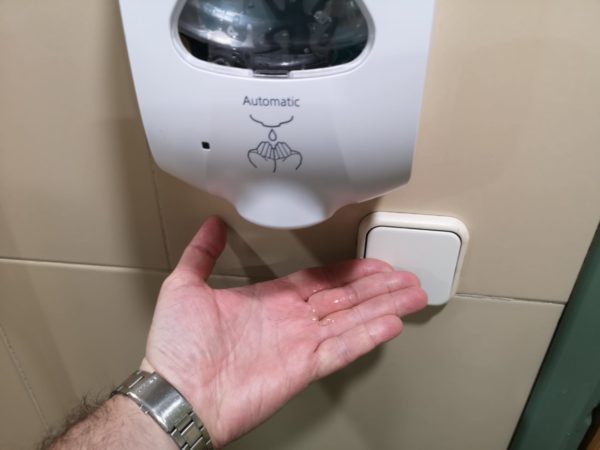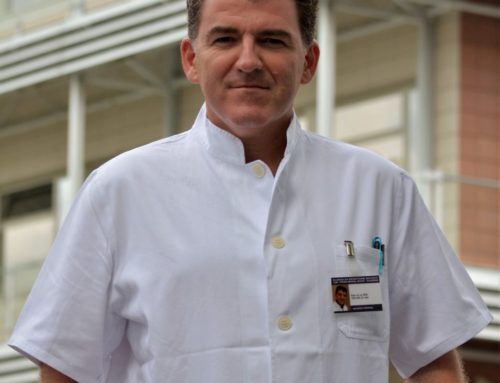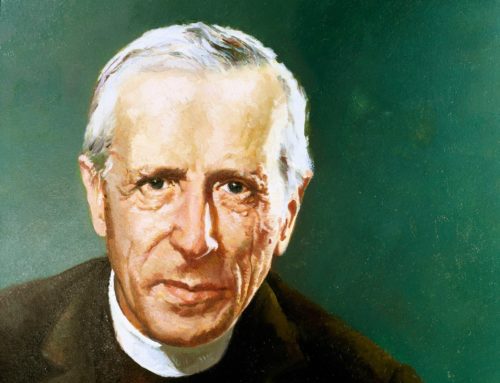The following is the Message sent by His Eminence Cardinal Peter Kodwo Appiah Turkson, prefect of the Dicastery for Promoting Integral Human Development, in the time of Coronavirus (COVID-19):

Message of Cardinal Peter K.A. Turkson
To the Presidents of the Episcopal Conferences,
To Bishops responsible for health pastoral care,
To social-healthcare and pastoral workers,
To the Civil Authorities,
To patients and all their families;
To volunteers and all persons of goodwill,
Peace be with you!
We are experiencing days of great concern and growing anxiety, days when human fragility and the vulnerability of supposed security in technology are undermined worldwide by the Coronavirus (COVID-19), to which all the most significant activities, such as the economy, business, work, travel, tourism, sport and even worship, are bowing, and whose contagion also significantly limits the freedom of space and movement. The Department for the Service of Integral Human Development wishes to unite itself with the voice of the Holy Father, thus reiterating the closeness of the Church, in the animation of the pastoral care of health, to all those who suffer from the contagion of COVID-19, to the victims and their families, as well as to all health care workers, engaged on the front line, committing all their energies to caring for those affected and bringing them relief.
Thinking particularly of the countries most affected by the contagion, remembering them in our prayers, we unite with the work of the civil authorities, volunteers and those who are committed to stopping the contagion and averting the risk to public health and the growing fear that this rampant epidemic is generating. We also encourage lay and Catholic, national and international health structures and organisations, both national and international, to continue to offer in a synergistic way the necessary assistance to people and populations, as well as to implement all efforts indispensable to finding a solution to the new epidemic, following the indications of the WHO and the national and local political authorities.
On this occasion, both the Holy Father and several Heads of State have expressed their solidarity with the countries most affected, donating medical products and financial aid. We hope that everyone will be able to continue this work of support, because in the face of such an emergency many nations, especially those with weaker health systems, will find themselves overwhelmed by the effects of the virus, and may not be able to cope with the demands for care and proximity to their nations. This moment of great need may, we hope, be a good time to strengthen solidarity and closeness between States and friendship between people. This is the time to promote international solidarity in sharing tools and resources.
Of course, this incidence of the virus, like any emergency situation, highlights the serious inequalities that characterise our socio-economic systems. They are inequalities in economic resources and in use of health services, as well as in qualified personnel and scientific research. Faced with this range of inequalities, the human family is required to feel and to live truly as an interconnected and interdependent family. The incidence of the Coronavirus has demonstrated this global significance, having initially affected only one country and then spread to every part of the globe.
For every person, believer or non-believer, this is a good time to understand the value of brotherhood, of being inseparably linked to each other; a time in which, from the perspective of faith, the value of solidarity, which springs from the love that is sacrificed for others, “helps us to see the ‘other’ – whether a person, people, or nation – not just as some kind of instrument […], but as our ‘neighbour’, a ‘helper’ (cf. Gen 2: 18, 20), to be made a sharer, on a par with ourselves, in the banquet of life to which all are equally invited by God” (SRS 39.5). The value of solidarity also needs to be incarnated. Let us think of our neighbour, the office colleague, the school friend, but above all of the doctors and nurses who risk contamination and infection to save those who are infected. These workers live and show us the meaning of the Paschal mystery: donation and service.
Already Pope Francis, in his Message for Lent 2020, exhorts us to contemplate with a renewed heart the mystery of Easter, the mystery of the death and resurrection of Jesus, and to welcome freely and generously His self-giving: His suffering unto death as a gift of love for humanity. The embrace of Jesus’ suffering, Pope Francis tells us, becomes the embrace of all the suffering people of our world, including all those affected by COVID-19. They are today the expression of Christ Who suffers, and in the same way as the evil happened in the parable of the Good Samaritan, they need concrete gestures of closeness from humanity. People who suffer, whether through contagion or otherwise, constitute a “laboratory of mercy”, for the multifaceted nature of suffering requires various forms of mercy and care.
At the beginning of this Lenten itinerary, for many who are deprived of some community liturgical signs such as the celebration of the Eucharist, we are called to an even more deeply rooted journey on what sustains the spiritual life: prayer, fasting and charity. May the efforts made to contain the spread of the Coronavirus be accompanied by the commitment of each individual faithful for the greater good: the reconquest of life, the defeat of fear, the triumph of hope. To the communities most affected, we recommend not living everything as a form of deprivation. If we cannot gather in our assemblies to live our faith together, as we usually do, God offers us the opportunity to enrich ourselves, to discover new paradigms, and to rediscover our personal relationship with Him. Jesus reminds us: “When you pray, go to your private room, shut yourself in, and so pray to the Father Who is in that secret place, and your Father Who sees all that is done in secret will reward you” (Mt 6: 6). How many times Pope Francis has invited us to keep the Scriptures at hand! Prayer is our strength, prayer is our resource. Here, then, is an opportune moment to rediscover God’s fatherhood and our nature as His children: “In the name of Christ we appeal to you to be reconciled with God” (2 Cor 5: 20) says Saint Paul, and this is the Lenten Message of this year which Pope Francis gave us as a gift. What providence!
Let us pray then that God the Father will increase our faith, help the sick in healing and support health care workers in their mission. Let us strive to avoid the stigmatisation of those who are affected: the disease knows no boundaries or skin colour; instead, it speaks one language. Let us cultivate the “Wisdom of the Heart”, an “attitude infused with the Holy Spirit” in those who know how to open themselves to the suffering of their brothers and sisters and recognise in them the image of God. Thus, we can affirm, like Job, “I was eyes to the blind and feet to the lame” (Jb 29: 15). In this way we will be able to serve those who suffer, to accompany them in the best way and to be in solidarity with those in need without judging them.
We ask the political and economic authorities not to neglect social justice and support for the economy and research, now that the virus is unfortunately creating a new “economic crisis”. We will continue in every way to support the efforts of health workers and medical facilities in various parts of the world, especially in the most remote and those most in difficulty, relying also on the active solidarity of everyone.
We ask the Holy Spirit to enlighten the efforts of scientists, health workers and governors, and we entrust all the populations affected by the contagion to the intercession of the Virgin Mary, Mother of humanity.










